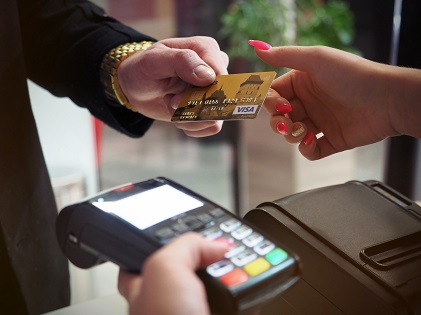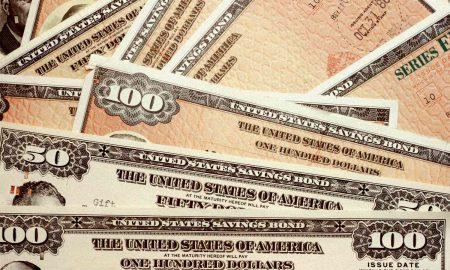
Planning on Getting a Credit Card? Here’s Why You Shouldn’t!

 Getting a credit card could seem like the most obvious thing to do when you have a steady source of income. It gives you an additional payment option. The huge limits on your card let you buy things now and pay for them later. It also helps you get a good credit score, something that comes handy while applying for a loan.
Getting a credit card could seem like the most obvious thing to do when you have a steady source of income. It gives you an additional payment option. The huge limits on your card let you buy things now and pay for them later. It also helps you get a good credit score, something that comes handy while applying for a loan.
But did you know that most financial experts do not own a credit card? They often advise people against getting one too. And there is more than one reason for them to say so. If you are planning on getting a credit card, here’s why you should think again.
High Charges
The annual maintenance charges are very high on credit cards. While they claim that this is to offer protection against theft or misuse of your card, the charges don’t end there. Your credit card company will impose a charge on everything from a transaction to a delay in payment. Besides this, the interest rate on bills increases as your credit score drops. You will not receive an intimation on that because you have signed on the dotted line agreeing to an increasing rate. Apart from this, the credit card company can also increase your annual maintenance charges if you have a low credit score? So, technically, all the “savings” that you make by using a credit card, go back to the company in the form of credit card charges. Remember, there are no free lunches!
Makes You an Impulsive Shopper
 Let’s assume a scenario where you do not have a credit card, but you see a sale that seems too good to be true. You will think if this is what you need and how it fits into your budget. However, when you possess a credit card, it gives you the freedom to buy now and pay later. This forces you to give in to your impulse and buy all that attracts your eyes.
Let’s assume a scenario where you do not have a credit card, but you see a sale that seems too good to be true. You will think if this is what you need and how it fits into your budget. However, when you possess a credit card, it gives you the freedom to buy now and pay later. This forces you to give in to your impulse and buy all that attracts your eyes.
Indulging retail therapy is great once in a while. However, it might not be good for your financial health. The massive bill that comes at the end of the month will be less than appealing. It might force you to give up on a few necessities to be able to pay this bill.
Research shows that most shopping on the Black Friday Sale happens using a credit card. Most people end up hoarding things they do not need just because it’s available for a cheaper price. While it might seem like you are saving 100 dollars by buying a product now on sale, think about it this way. You will save the entire cost of the product if you do not buy it because you do not need it! In other words, you will end up buying movie tickets, clothes, and vacation packages that you don’t need. And you’re doing it just because they have a “deal” on your credit card. Think about it, and you will realize that it’s just a scam to make you spend in the first place. And not to forget the high-interest charges on credit card spends that you will end up paying.
The Fine Print
 Most people ignore reading the fine print. However, it is important to read every tiny detail in there. This will give you a better understanding of the minimum payment. Besides that, you should also know about the penalties, including the ones for default, the card limit, cash advances, and change in rate clause. Once you are done crossing the T’s and dotting the I’s, there’s not much you could do.
Most people ignore reading the fine print. However, it is important to read every tiny detail in there. This will give you a better understanding of the minimum payment. Besides that, you should also know about the penalties, including the ones for default, the card limit, cash advances, and change in rate clause. Once you are done crossing the T’s and dotting the I’s, there’s not much you could do.
You will be liable for every claim in the fine print and will be held accountable for violating any of them. Most importantly, the credit card company makes you give up any rights to sue the company for a dispute if one were to arise in the future. A high price to pay indeed for a tiny piece of plastic!
Impact on the Credit Score
Contrary to the common belief that a credit card will help your credit score go up, it works the reverse of it. For instance, if you use your credit card often and have pending bills, it will impact every expense in your life. This means with a credit card debt, and you will have a low credit score. It is thus causing you to pay a higher rent, premium, etc., in comparison to those with a good credit score.
We hope these points helped you get a better perspective on things. So think again, talk to your financial advisor, and then take the plunge if it is unavoidable!
More in Big Bank Accounts
-
`
Why 50-Year-Olds Are Looking for a Career Change
In today’s fast-paced and ever-evolving job market, it’s not uncommon to see individuals in their 50s embarking on new career paths....
November 20, 2023 -
`
Why Mortgage Demand Is Crashing as Interest Rates Skyrocket
Imagine having a favorite local ice cream shop that suddenly jacked up its prices by 50%. You would probably think twice...
November 18, 2023 -
`
Santo Spirits | Sammy Hagar and Guy Fieri’s Joint Venture
In the world of entrepreneurial partnerships, some unions are destined for greatness. The unexpected alliance between Sammy Hagar, the iconic Van...
November 12, 2023 -
`
Branded Content: A Genuine Way to Connect With Your Audience
Have you ever binge-watched a series on Netflix, only to later realize that the beverage everyone’s sipping on is that brand...
November 3, 2023 -
`
Southwest Airlines Tackles Passenger and Labor Challenges
Southwest Airlines, a prominent player in the aviation industry, has found itself at a crossroads, facing a combination of passenger dissatisfaction...
October 28, 2023 -
`
Everything You Need to Know About Blended Interest Rates
Hou ever blended a smoothie and thought, “How on Earth do my strawberries, spinach, and protein powder come together to taste...
October 17, 2023 -
`
The Osbournes ‘Relaunch’ Podcast After 5 Year Break
If you were glued to your TV in the early 2000s, there is no way you missed the hilarious, raucous, and...
October 10, 2023 -
`
Tesla in China: Back-to-Back Price Drops, But No Sales Jump?
As temperatures soared in the summer of 2023, Tesla seemed to be heating things up in the Chinese market too. A...
October 6, 2023 -
`
Navigating Red Flags in the Workplace
In the journey of our careers, it’s not uncommon to encounter red flags in our jobs that signal potential issues or...
September 30, 2023















You must be logged in to post a comment Login